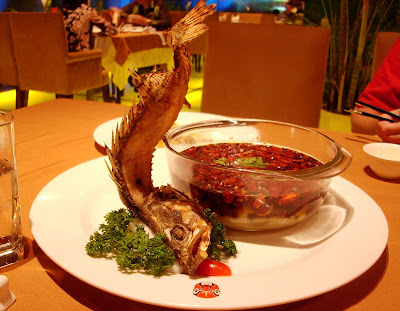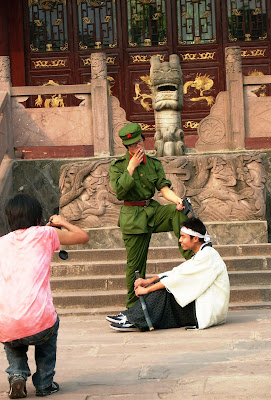Apartment hunting here is mainly legwork; there are many real estate offices with ads in the windows and if you walk in they will start showing you around immediately. There are good online listings as well. People often see many, many places before they find an acceptable one though.
Lived-in apartments, both high and low end, are often a horror of grime since people here don't seem to clean out houses when they move out. You need to learn to see past the initial dirt to the place's potential. Newer places, on the other hand, can be really attractive and come with a landlord eager to rent and willing to buy whatever furniture and appliances you want, but also are full of strong new-house chemical smells, which are a scary prospect here. Newer, high-end places also often have multiple cameras at the entrances and hallways, hawk-like guards who think nothing of interrogating or barring your guests, and pass cards to access the front gate and the floor of your building in your elevator. It was tough to find a place that was nice enough to live in but wasn't set up like a prison.
The apartment I ended up taking was lived in and needed lots of work - there was dried food on the walls which no one had wiped off which left greasy marks on the paint. (I ended up hiring a cleaning service, then cleaning again with friends' help before getting the place repainted for a few hundred yuan out of my own pocket.) To turn on the light in the kitchen you not only flick the switch, but you open and close a cupboard door. The kitchen has no hot water - hadn't thought to check, but the hot water heater outlet only goes to the bathroom. There was writing on the walls, and the door of the shoe cabinet was kicked in. ("What's the problem? You can still use it!" said the agent when I pointed it out.) Despite the quirks I love the apartment - it's very well ventilated, which is a huge concern in a place this humid, and has light on three sides and air conditioners in all the rooms.
Besides being one of those intense, sink or swim Mandarin learning experiences that all expats have, I learned tons about the city. Some of the the more memorable house hunting episodes:
-Going into an enormous complex above a high end shopping mall with high expectations, and seeing many roaches skittering across the floor
-Seeing lofts decorated in a very Chinese style.
-Going to a large, slick real estate office where the uniformed agents insisted on speaking to me in terrible English and told me the building I was interested in was far out of my budget.
-Going around the corner to a tiny office where a guy who spoke mostly his own dialect (not local) chatted about his family and flipped through a folder to find places for me, managing to find something to show me in that same building.
-Realizing that this guy lives in the little eight by five foot space behind his desk, and feeling a little self conscious about all my requirements
-Meeting a landlord at one place, and having the agent invite me to take a look at the bathroom, then realizing the landlord is availing himself of the facilities
-One agent's utter disbelief that I wasn't interested in one of the prisons
-The long suffering agent I did use, who was one of the first ones I contacted and who showed me the place I finally took, negotiating rent and payment terms as well as helping me with a bunch of extra stuff and finally waiving his agent's fee for me (agent fee is usually half a month's rent, give or take)



















































